|
Last week, I published By 1979 Standards, Your 1st Grader is Physically and Emotionally Stunted. The TL;DR is that being able to walk 4-8 blocks alone -- to a friend's house, a playground, school, the store -- was once a prerequisite for 1st grade! Most 1st graders today have never done anything alone, ever.
Even at freaking Chuck E. Cheese! Seriously. I've been to Chuck E. Cheese with a couple of different families. And each time, the parent hovered constantly over the child. They either inserted the tokens into the coin slots for their kid, or took the child's hand in theirs and guided it the whole time.
They squatted down next to their kid at the whack-a-mole and explained, in the most ridiculous, condescending language ever, "Okay, Jennie! You're going to take this mallet, and you're going to wait for the moles to pop up out of these holes. And then you hit them. Okay, want me to help?" (Want to actually help your kid develop predictive, problem solving and analytical thinking skills? Read this.)
They even assisted their kid in tearing off their tickets at the end of the game. And then they carried the tickets around as they hovered from game to game. And! After every game, they'd annoyingly ask, "Okay, what are WE going to do next? Should we try this one? Should we try this one?" All this, at the place where a kid can (supposedly) be a kid? I mean - check out this commercial from 1986. Notice anything that's NOT hovering constantly, condescendingly and annoying over the children at all times?
Parents, BTFO. (That's pronounced "B T foe," and I think you know what it stands for.)
When you act like this, you are making your child stupid. You are robbing them of opportunities to develop fine and gross motor skills. Without which they cannot control the world around them. Without which they can't hold a pencil and turn a page or push a wagon up a hill. Without which they are not safe. For example. Schools across the country have banned the popular childhood game, Tag, from the playground. According to Why Kids Are Getting More Aggressive on the Playground, a recent post by occupational therapist Angela Hanscom, Kids are starting to hit with such force that they often end up whacking their opponent across the back in a monstrous slap. I’ve seen this myself many times. “Ouch!” one kid cries, now on their hands and knees and fighting off tears. “Don’t hit so hard!” they yell up at the child standing over them. Often, you hear the other child whine, “I didn’t mean too…” Many times the act seems unintentional, although painful for the victim nonetheless. Tag is now becoming such an issue that schools are starting to ban this once beloved game.
Clearly, the kids don't mean to hurt each other. But they can't help it. Their parents have stunted their physical and cognitive development. They have not developed the same proprioceptive sense (i.e., muscle and joint control) as the kids of yesteryear.
Back in the day, kids used to go outside and play. Not only was it a magical part of their childhood... but it was also an essential part of their development. They learned how to use their bodies to make a snowman or throw a snowball. They learned how to race up hills, balance beam on 2x4s, and pump their legs to operate a swing. They built forts and dams. They rode bikes and climbed trees. And, yes. Sometimes they would hit or push or "tag" another child too hard. And they would see that they hurt the other child, and learn from it. Because they had good proprioceptive sense, they were able to fine-tune their motions and be gentler next time. As an added benefit, they learned how to communicate, compromise, and negotiate as they got together with other children, invented games and made up their own rules. (You know, as opposed to a hovering parent telling them what they were going to play and how -- and then proceeding to mediate every little dispute. Are you trying to raise an entrepreneur... or a mindless hoop jumper?) These are skills that are known to increase your child's lifetime earning potential -- not to mention happiness, mental health and relationships. ***
Helicopter parenting isn't solely to blame. Another reason why kids have stunted sensory development is because of over-scheduling. I spend a lot of effort worrying about high-achievers in this world, because the path that most kids take is extremely hurried, toxic and disengaging. Kids now spend almost their entire day putting on a show for adults -- lessons, rehearsals, school, homework, practice, more homework. When they finally have some free time, their brains are fried. They don't have the energy left to play creatively.
So they turn on the iPad, the iPhone, the computer or the TV. And spend almost all of their free time looking at a screen. Even thoughiPads make kids boring. Want to know about this? Read The Hurried Child: Growing Up Too Fast, Too Soon, by David Elkind.
***
Another culprit is irrational parental fears. Possibly because of the media, possibly because of something else, parents have a hugely irrational fear of their children being injured, murdered or kidnapped. According to a recent New York Times post, The Case for Free-Range Parenting, Respondents were terrified by the idea of giving their kids only a fraction of the freedom they had enjoyed as kids. Many parents cited fear of abduction, even though crime rates have declined significantly. The most recent in-depth study found that, in 1999, only 115 children nationwide were victims of a “stereotypical kidnapping” by a stranger; the overwhelming majority were abducted by a family member. That same year, 2,931 children under 15 died as passengers in car accidents. Driving children around is statistically more dangerous than letting them roam freely.
So let's put that into context. According to Stephen Dubner, author of Freakonomics: A Rogue Economist Explores the Secret Side of Everything, getting in a car is one of the most dangerous things we do. And yet, driving is surprisingly safe. Dubner's co-author, Steven Levitt, once stated that if the only thing you did, all day, every day, was drive your car, and the only thing that could possibly kill you was a car accident... you would be driving for an average of 250 years before anything happened.
Woooo! Party on!
By that logic, if all your children did, all day, every day, was walk around their neighborhood alone, and the only thing they could possibly die (or disappear) from was kidnapping, they would have to walk for 6,250 YEARS before they were kidnapped.
(That logic totally makes sense, right?)
Here's another irrational fear: that, left unattended, kids will get hurt in areas designed for kids, like playgrounds, Chuck E. Cheese's, and even your own backyard.
But serious playground injuries, and especially playground deaths, are exceedingly rare. In fact, fewer than 13 children die per year on playgrounds -- and among those, runaway motorcycles or equally freakish, unpredictable, unpreventable horror are the cause of death. And minor injuries are just that: minor. In fact, psychology research has shown that there is a psychological benefit to minor injuries in childhood. Basically, children are hardwired to explore. Risk-taking (or, at least, the perception thereof) is in their nature. Risks tend to manifest themselves in one of six ways: 1. Exploring heights 2. Handling "dangerous" tools, such as scissors, knives or hammers 3. Being near dangerous elements, such as water or fire (or, as was the case in Stand By Me, a dead body) 4. Rough-and-tumble play (which, as I mentioned above, is a way for kids to learn to negotiate aggression and cooperation) 5. Speed -- e.g. cycling, skateboarding, ice skating at a pace that feels too fast 6. Exploring on their own
When kids do these things, they will eventually fall down. Bruise their arm. Skin their knee. Maybe even break a finger. It will hurt. BUT...
Research by Ellen Sandseter, a professor of early-childhood education at Queen Maud University College in Trondheim, Norway, has found that kids who spend more time exploring on their own before the age of nine are less likely to to have anxiety and separation issues as adults. Likewise, kids who got hurt falling from heights when they were 5-9 years old are less likely to be afraid of heights at age 18. Our minor injuries actually give us confidence. They teach us what our limits are, how to handle ourselves in scary situations... and that, even if something goes wrong and you get hurt, you can get better. (Resilience for the win!) And, of course, these injuries will happen less frequently and less severely if your child has better joint and muscle control. If you really want to increase your child's safety, don't ban them from the playground. Help them develop their proprioceptive sense.
(Hopefully, this helps you put your fears into perspective. Kids don't need to be protected from every risk and at all costs -- and trying to do so will make them stressed out, unfulfilled and sick. If you need more help (because this is an issue with you, not your child), you should definitely, as soon as you can, check out Free Range Kids: How to Raise Safe, Self-Reliant Children (Without Going Nuts With Worry) by Lenore Skenazy.)
***
So. Going back to your child's physical and mental development. Say you're worried your child's senses aren't working quite right. What should you do? Don't panic. All that's happening is your child isn't moving and playing enough. You can easily fix it. Follow these steps. 1. Give your child some chores. Ideally outdoor ones, like raking, shoveling, gardening, or any activity that gives weighted input into your child's joints or muscles. Taking out the trash, carrying in groceries -- the list goes on. (Not to mention that the extra help is totally mutually beneficial.) One chore I often had growing up was fire duty. We had a wonderful wood stove, and my brother, sister and I would take turns hauling in wood (either from the wood room in the basement or the wood pile outside), crumbling up newspapers, making a little wood tee pee, and starting the fire that kept our family room warm. When we got older, we'd also help chop the wood -- which is precisely why I have never chopped my foot off. (Gotta keep 'em spread apart when you're swinging the ax, in case you miss.) And now I'm a grownup, and I can make a fire better than anyone I know. (Except for Aborigines, who are so much better than I am, I can't even comprehend it.) And I still love being around this "dangerous element."
2. Encourage (or even force) your kids to play outside. When I was growing up and my mom wanted time to herself, she would simply say, "Up, down, or out." Meaning that my siblings and I could either go upstairs, into the basement, or outside to play. And since I grew up here:
And that's just the part of the property that was in front of the grain silo!
The choice was usually pretty obvious. I spent a lot of time climbing trees, crawling through hay bales and rafters in the barn looking for kittens, biking to the graveyard (thereby combining #6, independence; #5, speed; and #3, dangerous, ghostly elements) or creek, riding horses, and trampolining.
And then, ten years later, THIS happened:
#Causation, amirite? :P
If you're worried about "outside" being full of germs or allergens or whatever - fear not! Being exposed to dirt, mold, spores and other outdoorsy elements actually reduces your child's chances or getting allergies and asthma. AND it gives them a healthier microbiome. Not to mention that a book's worth of research shows how important outdoor play is for children's (lifelong) mental health. Check out Last Child in the Woods: Saving Our Kids From Nature Deficit Disorder by Richard Louv.
3. Read Mike Lanza's book, Playborhood: Turn Your Neighborhood Into a Place of Play. It's the best book out there about making your neighborhood a safe and magical place for kids to play. It addresses issues like managing traffic in your community and making outdoor play more social (one common problem is that other kids don't play outside, so outside is "lonely"). If that doesn't inspire you, I don't know what will.
4. Don't flinch when your child engages in rough-and-tumble play. It's a super important, healthy part of their development. And it's a great way for them to learn about empathy and complicated human emotions. It's a good way to develop healthy attitudes about competition. And... it's just plain fun! I'm an adult, and you will see me engaged in some form of rough-and-tumble play at least once per day.
You don't want to mess with me!
5. Invest in some heavy toys. Watch a child play sometimes, and you will certainly come to the conclusion that they play like it's their job. And, in a way, it is. Play is how kids begin to learn. It's how they develop their senses, bodies and minds.
Here are some toys that will help get your child's muscles working.
But you can also check out the Spiderman version (for ages 5-11), the Grow-With-Me version (transitions from a scooter to a skateboard to a longboard), and others.
The list is truly endless - I'm just throwing out these ideas to get you started.
PS: If you happen to know where I could get my hands on a Mongo Bat, you can be my new BFF.
6. Anything I forgot??? Let me know in the comments!
***
6 Comments
SpalvaLit
4/25/2015 01:47:25 am
In most European big cities it's common for kids to take public transportation from a fairly early age -- ranging from 7 in Vilnius, for example, to a bit older in Vienna. My 9 year-old walks, scoots or takes the tram to school (and it's a 20-minute walk or three trams depending on if she feels like walking one leg or not). Scooters are very popular where we live. Very few kids walk with a parent, although some do.
Reply
5/1/2015 05:58:45 am
Interesting perspective - thanks for sharing! I agree that kids who play organized sports at seriously at risk of overdoing it -- I've heard some horror stories of high school boys having the Tommy John surgery... which I believe only really lasts about 10 years before you need another one. Take a look at the baseball greats of the past! They were NOT pitching year-round in middle- or high school.
Reply
6/9/2015 06:40:31 pm
This is really interesting perspective. I liked your title “kid’s games are getting more dangerous and it’s entirely their parents fault”. To make our kids active it is necessary to make them independent. Wonderful blog for kids stuff and enhance their skill power.
Reply
9/22/2015 12:52:54 pm
Thanks! Kids NEED independence in order to learn to conquer their fears; take accountability for their own actions; learn important emotional, social, cognitive and leisure skills; and build confidence in themselves. It can be scary... but it's important for parents to let kids navigate on their own sometimes.
Reply
millennial
12/14/2015 07:31:36 pm
Okay, I don't even know how I stumbled upon this website, but I did, and I've gotta say this is so accurate it's insane. I'm a millennial (18) and I just went off to college. After reading this article, I realize my mom was the definition of a helicopter parent when I was growing up. All the while, I was begging for my own independence, as I loved adventure and taking risks, and she was adamant about restricting me from such. I used to watch movies like Super 8 or even old TV shows like the The Andy Griffith Show and I would get so jealous over how those kids were allowed to go out and ride their bikes everywhere or use public transportation frequently from a young age or be able to go outside and easily find other kids to play with. Nowadays, when it comes to biking places, my mom, along with many other parents, thinks that's equivalent to advertising kids to predators or a death wish. Since so many parents feel the same way, it's hard finding other kids to ride around with or even play outside with. I feel like suburban kids almost have it the worst, because at least in places like NYC you have central places like Central Park, but in the suburbs, such places don't exist. Like you might have a lawn and a patio with maybe a pool in the back, but if your friends don't live nearby or your neighbors lack children, then it can be pretty lonely playing outside if your only playmates are the flowers, especially if you're an only child (I am). Mass transit tends to be stigmatized in the suburbs too. I remember I took a bus with my friend one day after school in my freshman year of high school just for a spontaneous adventure, and afterwards I told my mom, and she was furious and acted like I could've been killed by hobos, when she herself rode at least three buses a day when she was in elementary school. I think the fact that other children don't play outside as much they used to is the worst though. I mean adventuring by yourself is fun, but when you're always by yourself then it becomes a problem because then it's almost fostering loneliness. It's so disappointing how society has become and encouraged such behaviors and how nowadays "playdates" means kids all sitting together in a room mindlessly playing games on their iPads or parents' phones. Even road trips, when people used to be forced to look out the window at the surrounding environment, have been reduced to people just checking facebook or playing games. I find it so crazy and sad that kids' worlds have been reduced to a 4 inch phone screen.
Reply
millennial part 2
12/14/2015 07:53:21 pm
It's millennial again! I forgot to include that the lack of independence kids are dealing with nowadays could have a serious effect on their college experience or how they deal with the almost overwhelming independence they are granted in college. I have a rebellious nature, so no matter how much my mom tried to restrict my independence I always managed to find a way around her. However, coming to college was still a major shock. I find that the kids around me who never had to do the laundry or clean the dishes are having a very tough time. I also find that the kids who were exposed to partying and drugs, etc, in high school and were more independent by venturing off on their own and self-sufficient are having an easier time managing their time and homework with the fun, social aspects college provides. The kids who were kept more in a cocoon and who have never been exposed to such aspects often go overboard as they don't know their limits and they don't know how to balance school with fun or make the proper decisions when choosing between doing chemistry homework or going to the club. College was a major shock for me in the sense that I was suddenly bombarded with all these responsibilities that I never was even taught how to fulfill growing up. It's weird and almost a cruel joke when one grows up with helicopter parents that always do stuff for you, and then they throw you (without any preparation) into an environment where you have to do literally everything by yourself. That's why I think so many fail college classes their first semester, because it's not the workload but rather the entire change in environment that really trips one up. I've noticed that people who come from boarding schools often are already used to being self-sufficient and don't find college to be nearly as shocking as those who weren't privileged enough to attend boarding school but privileged enough to be waited on hand and foot by their parents.
Reply
Leave a Reply. |
About the Author

Eva is a content specialist with a passion for play, travel... and a little bit of girl power. Read more >
Want to support The Happy Talent? CLICK HERE!
Or Find me on Patreon!
What's Popular on The Happy Talent:
Trending in Dating and Relationships:
What's Popular in Science: Playfulness and Leisure Skills:
Popular in Psychology and Social Skills:
Categories
All
|

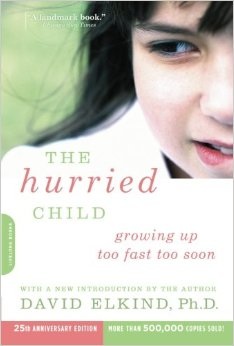

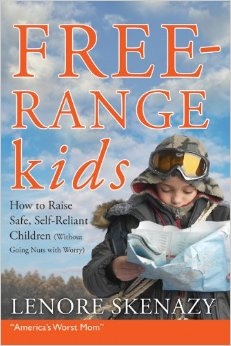

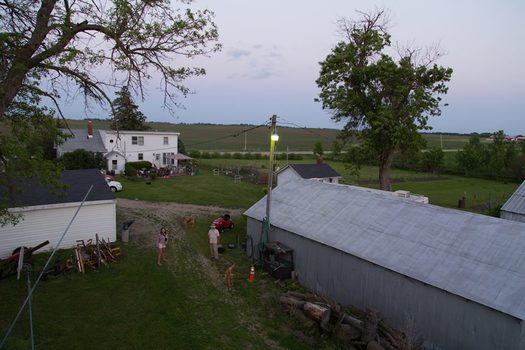

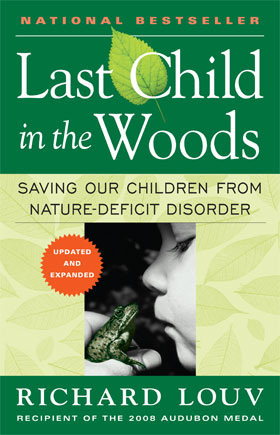
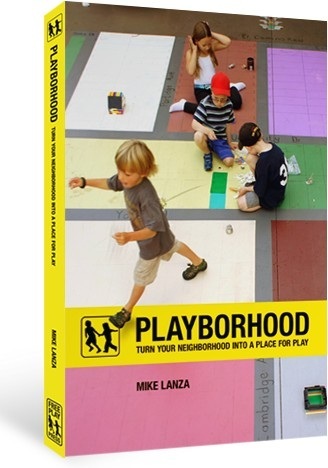
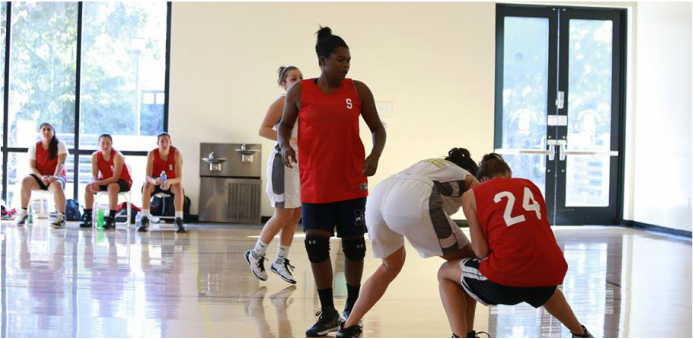
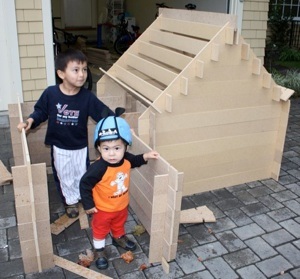
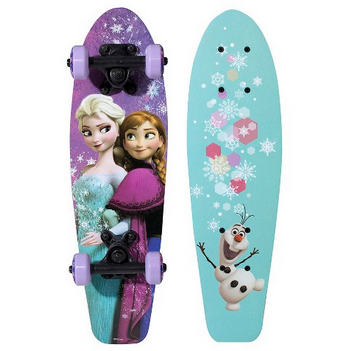
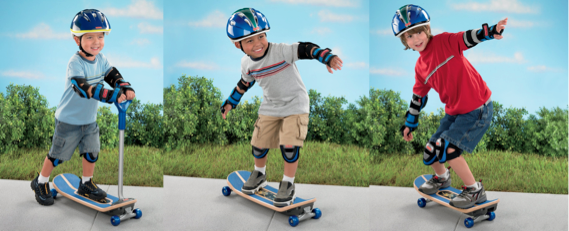
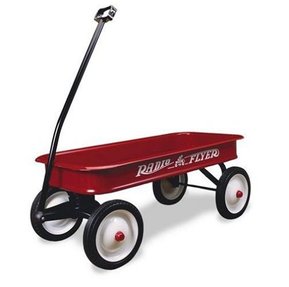
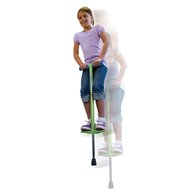
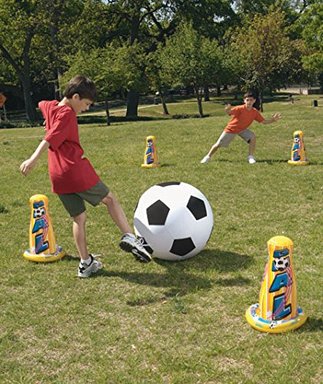
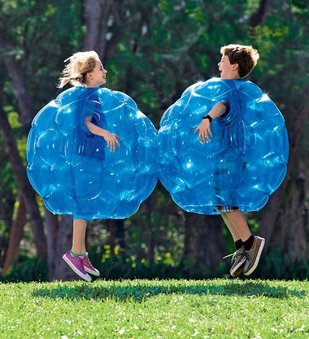
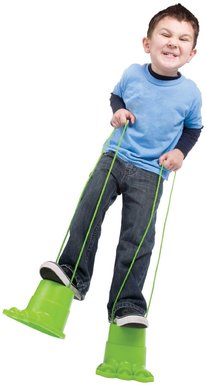
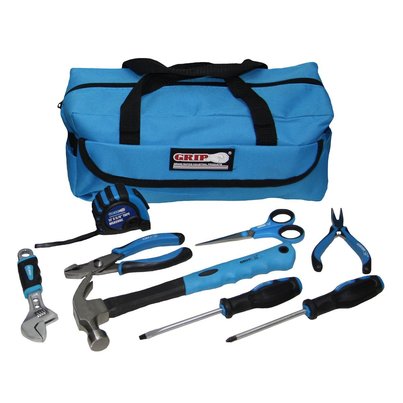

























 RSS Feed
RSS Feed